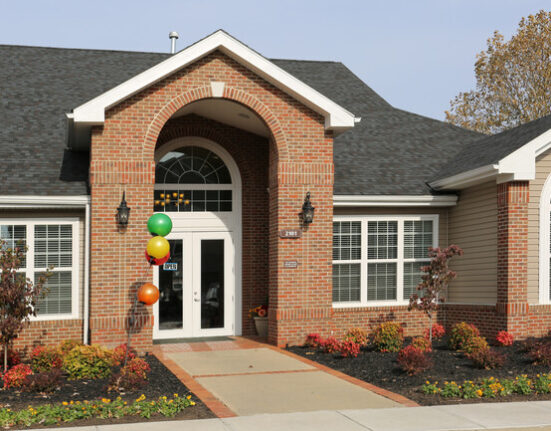Picture this: In the summer of 2015, two international investors—Markus, a Swiss expatriate living in New York, and Anna, a successful entrepreneur from Germany—decided to invest in Switzerland’s real estate market. Having grown up in Zurich, Markus was nostalgic about owning a small chalet in the Swiss Alps. Meanwhile, Anna was drawn to the stability and security of Switzerland’s real estate. Fast forward to 2023, and both investors have seen their investments appreciate significantly, but with vastly different experiences. Markus’s alpine chalet has almost doubled in value thanks to increasing demand for vacation properties in the region. However, Anna faced challenges navigating the legal complexities of foreign ownership and stricter lending rules, yet her commercial property in Geneva has yielded steady rental income. This story is just one example of the complexities and rewards of investing in Switzerland’s real estate market.
Switzerland is renowned for its stunning landscapes, high quality of life, and stable economy, all of which make it a desirable place to live and invest. But beneath the surface, the Swiss real estate market is highly competitive and regulated. This article delves into the trends, challenges, and opportunities of Swiss real estate, supported by recent data and market insights, to help you understand the dynamics of this unique market.
Switzerland’s Real Estate Market Overview: A Market of High Demand and Low Supply
Switzerland real estate market is characterized by limited supply and consistently high demand, particularly in urban centres like Zurich, Geneva, and Basel. According to a 2023 report from Wüest Partner, a leading Swiss real estate consulting firm, property prices in Switzerland have increased by an average of 30% over the past decade. This growth has been driven by population growth, low interest rates, and Switzerland’s appeal as a haven for international investors.
However, the market dynamics differ significantly between urban and rural areas. Metropolitan areas, particularly Zurich and Geneva, continue seeing robust demand for residential and commercial properties. For example, the price per square meter in Zurich reached an average of CHF 13,500 (approximately $14,800) in 2022, making it one of the most expensive cities in Europe (Source: UBS Real Estate Focus 2023).
In contrast, while rural and alpine regions like Valais or Graubünden have seen slower price increases, demand for vacation properties has surged post-COVID. According to a report by Credit Suisse, the pandemic drove a “second-home boom,” with prices for vacation properties in these areas increasing by an average of 6% annually since 2020.
Supply Constraints: The Pressure of Urbanization and Regulations
One of the biggest challenges facing the Swiss real estate market is the limited land supply for new developments. Switzerland’s stringent zoning laws and geographical limitations (due to its mountainous terrain) mean there is little room for expansion, particularly in urban areas. According to the Swiss Federal Statistical Office, only 7.5% of Switzerland’s total land area is available for building. This limited availability drives up prices, especially in major cities.
Moreover, Switzerland’s regulatory environment places additional constraints on real estate development. For example, the Lex Koller law restricts foreign nationals from buying residential property in Switzerland, except under certain conditions. While foreigners can purchase properties in tourist regions or for commercial purposes, buying residential properties in urban areas is challenging unless the buyer has a Swiss residency permit. These regulations protect domestic buyers from being priced out by international investors. Still, they also limit the available buyers, creating a competitive market for those eligible.
Additionally, the Second Homes Act (Lex Weber), passed in 2012, restricts the construction of new second homes in regions where more than 20% of the homes are already second properties. This law was designed to prevent over-development in popular vacation areas but has also contributed to a supply bottleneck in some tourist regions.
Demand Drivers: Switzerland’s Economic Stability and Demographics
Switzerland’s economic stability is one of the key drivers of its real estate market. As one of the wealthiest nations in the world, with a GDP per capita of approximately $93,000 in 2023 (World Bank), Switzerland offers a stable and predictable economic environment, which is particularly attractive to both domestic and international investors. The country’s low inflation rates, stable currency, and robust financial sector make it a safe investment option compared to more volatile markets.
In addition to economic factors, Switzerland’s growing population also fuels demand for housing. The country’s population grew by 0.7% in 2022, reaching 8.8 million people, largely driven by immigration (Swiss Federal Statistical Office). As more people move to Switzerland, particularly in urban areas, the demand for housing continues to outpace supply. This imbalance has resulted in an ongoing housing shortage, especially in cities like Zurich, where vacancy rates have hovered around 0.2% in recent years (Source: UBS).
Commercial Real Estate: A Lucrative Segment for Investors
While residential real estate is the most commonly discussed segment, commercial properties in Switzerland are also experiencing significant growth. Cities like Zurich and Geneva are global business hubs, attracting multinational corporations and financial institutions. According to a 2023 report by JLL, the Swiss office market saw rental growth of 4.3% year-on-year, driven by strong demand for prime office spaces in central locations.
Geneva, in particular, stands out as a major player in the international diplomatic and finance sectors. Over 300 global organizations and multinational companies are based in the city. This has fueled demand for high-end office spaces, with rents for prime locations averaging around CHF 1,100 per square meter per year.
Switzerland’s growing tech and life sciences sectors also contribute to increased demand for commercial real estate. Zurich is rapidly becoming a hub for technology startups, while Basel is known for its concentration of pharmaceutical companies, including giants like Novartis and Roche. This demand is driving new commercial developments, particularly in surrounding these cities.
The Future of Swiss Real Estate: Opportunities and Challenges
The Swiss real estate market is expected to remain robust, but its challenges are challenging. According to Credit Suisse’s 2023 real estate outlook, while property prices will likely continue to rise, the growth rate may slow as interest rates rise globally. The Swiss National Bank increased interest rates in 2023 for the first time in over a decade, which could dampen demand in the future, particularly for high-end residential properties.
However, Switzerland’s position as a safe and stable investment destination will continue to attract domestic and international investors. The country’s low vacancy rates, particularly in urban centres, and the strong demand for commercial properties indicate that investors can still benefit from rental income and capital appreciation.
Conclusion: Navigating a Competitive but Rewarding Market
Switzerland’s real estate market offers a unique combination of stability, high demand, and regulatory complexity. For investors like Markus and Anna, the market presents opportunities and challenges. While Markus benefited from the rising demand for vacation homes in the Alps, Anna’s experience highlights the importance of understanding the intricacies of Swiss real estate laws and market dynamics. For those willing to navigate these complexities, Switzerland offers one of Europe’s most competitive and rewarding real estate markets.
As always, potential investors should conduct thorough research and seek advice from local experts to navigate the specific legal, financial, and regulatory frameworks. Given Switzerland’s economic stability and high quality of life, it’s clear that the allure of owning property in this picturesque nation isn’t fading anytime soon.














